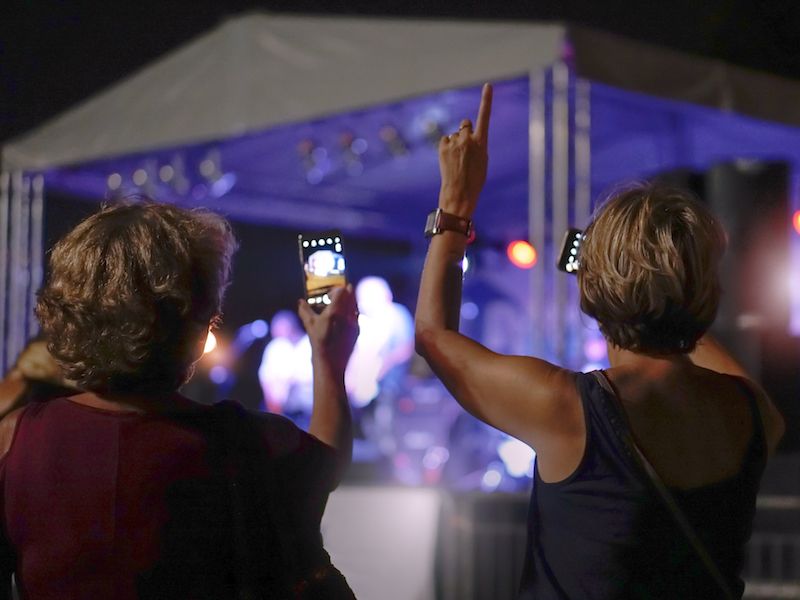
We’ve been looking forward to summer activities all year: trips to the beach, relaxing by the pool, and impaired hearing? That’s right, summer holds a few unseen dangers to your hearing, either from loud noises or the external situations you could find yourself in. Any sounds over 80 decibels could lead to harm to your hearing, while enduring hearing loss can happen in swimming pools or other bodies of water. To keep your hearing safe this summer, you have to be aware of your environment and take precautions. Here are six of the summer’s concealed hearing dangers.
When You go to Concerts, Put on Ear Protection
Whether you’re at an indoor arena or an outdoor concert venue you still need to use hearing protection during concerts. 90 decibels is in the danger zone for hearing damage and concerts reach this volume even at outdoor shows. So regardless of whether you’re attending an outside or inside concerts, it’s a smart plan to wear earplugs. Earplugs dampen the sound while still letting you to hear and enjoy the music. If you’re going to a performance with young kids, think about getting them a heavy duty set of earmuffs because children have more vulnerable ears than adults.
Fireworks Are More Than Just Loud
Honestly, there are a lot of reasons to avoid fireworks in the summer. This is not about the expert 4th of July displays, we mean the backyard fireworks that cause hundreds of incidents during the summer. Home fireworks reach decibel levels of nearly 155 which can injure your ears along with causing hand injuries, blindness and home fires. This 4th of July, leave the fireworks to the professionals and enjoy the display from a safe and sound distance.
Hearing Loss Can be Brought About by Lawnmowers
If you care about your yard, mower, edger, and trimer are your best friends. But have you ever noticed how off your ears feel after you get done, how everything sounds muffled or your ears are ringing? That’s because the lawn tools, which are constantly loud, impact your hearing over time. If you’ve ever observed lawn care pro’s, you most likely have seen them using ear protection, next time you work on your yard with loud power equipment, you should take a hint from them and wear earplugs or earmuffs.
How to Protect Your Hearing When You’re at Pools And Beaches
Huge numbers of people suffer from swimmer’s ear every summer, which occurs when the ear canal traps water that is high in bacteria. The bacteria then infects the ear, producing swelling and painful earaches. These bacteria are usually found in rivers and lakes but sometimes also be found in hot tubs and pools if the water isn’t correctly treated. As long as you have your ears treated by a hearing specialist you should be ok, and no lasting loss of hearing will occur. To be safe, when swimming in your pool, use specialized swimmers earplugs and keep the chemical balance precise to lessen the likelihood of getting swimmers ear.
Water Sports And Boats
If you enjoy the water, summer is beach and boating time for you. But, jet ski and boat engines are usually noisy,they can get up to more than 100 decibels. Long term hearing injury can happen after around 15 minutes of exposure to that kind of noise. In this case also, using a pair of throw away foam earplugs is a smart strategy.
Your Hearing Can be Harmed by Car Races
It doesn’t make a difference what type of auto racing you like, motorcycle, midget, Formula 1, drag racing or stock cars. All of them can cause a huge issue for your hearing if you attend many races this summer season. It’s calculated that volume levels can go over 120 decibels at some races, which is absolutely inside the danger zone for hearing damage. As mentioned earlier, your children should wear muffs while you should use earplugs at the very least. Because you may not be able to appreciate the sounds of any races in the future if you don’t.

